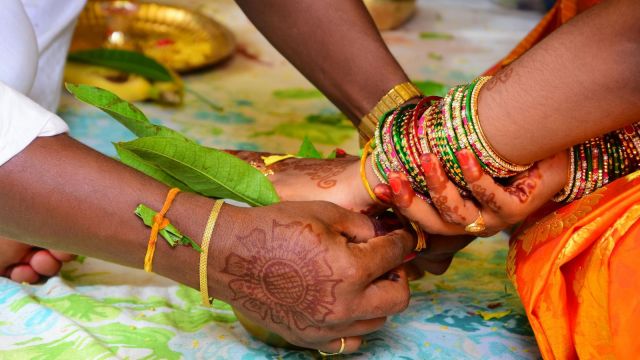

New DelhiJan 13, 2025 16:42 IST First published on: Jan 13, 2025 at 16:42 IST
In his suicide note, the technology professional Atul Subhash claimed that he had, like “most educated men”, assumed that women’s empowerment was good and benign, but the movement had now gone rogue. It is hard to argue with this position, for, feminists have also critiqued the enthusiastic promotion of women’s empowerment, which functions as a safer, “more benign” cousin of emancipation. Empowerment, “nari shakti” or current buzzwords such as diversity, aim to address severely skewed gender indices without meaningfully targeting structural factors that perpetuate inequalities.
Beyond the tragedy
It is impossible to comment on the particulars of Subhash’s suicide until (and unless) a robust and transparent investigation and court case is pursued. But since men’s rights groups have been quick to capitalise on this tragedy to call for a repeal of legal provisions aimed at protecting women, it is worth examining the allegations of “widespread misuse”.
Several commentators, including some feminists, have pointed out that the abuse of section 489A is indeed prevalent, but lay the blame at the doorstep of exploitative lawyers and police officers. It is also significant that Subhash had accused the family court judge in Jaunpur of extorting a bribe. Lawyers disillusioned with their profession and those who thrive due to the exacting provisions of some of these laws also hold the position that “false cases” are routinely filed but a closer examination of such cases would also reveal that the impression of misuse or falsity lacks a certain nuance.
Dowry demands and exchanges continue to be widespread in India and divorce lawyers also, at times, concern themselves with the return of items exchanged at the time of the wedding as part of the dowry. Additionally, accusations of domestic violence have become a staple to ensure divorce and alimony. The allegations of fake cases stem not from the veracity of the charges, but from the timing and the complainant’s alleged motivations.
In Johnny Depp’s defamation lawsuit against ex-wife Amber Heard, who had published an article about domestic violence, the jury was instructed to focus its deliberation not only on whether there was abuse, but also whether Heard’s Washington Post article can be considered defamatory. That is, the fact that the crime took place was in itself not deemed sufficient grounds to quash the lawsuit.
In my 2022 article on the petition to criminalise marital rape, I had argued that the fear of false accusations are based on an uneasy relationship between law and morality, where criminalisation of acts that are deemed socially acceptable brings with it a persecution complex and an accompanying perception that the complainants are essentially bad faith actors.
The course of sexual assault cases in Indian judicial spaces have shown us that women have been accused of acting in bad faith for making accusations after too much time has passed (as seen during the MeToo movement); for not resisting assault when they do complain in a timely fashion (in the case where actor Dileep is accused for orchestrating a conspiracy); for the platform they choose to make their accusation public (as seen in the Supreme Court judges’ statements on actor Siddique’s bail plea); and for informing themselves on their legal options before filing a complaint (in Tarun Tejpal’s case).
Women who make accusations immediately are just as likely to be condemned as women who remain silent in the hopes of an improvement in their situation and/or due to a fear of retaliation. Judges as much as police officers and the society inadvertently look for the perfect, blameless victim who makes her case not through her knowledge of the legal system or her rights, but from a morally upright position with no motivations other than the cause of justice. As the commentators on Depp-Heard and Tejpal’s cases concluded, this perfect victim does not exist.
Who is the victim here?
This is particularly the case in India where the pursuit of justice already comes at an exacting price. The decision to pursue redressal mechanisms, including for dowry harassment and domestic violence, can only be a deeply personal one, based on the individual’s immediate situation and needs. Some women may indeed end up using these provisions as a bargaining chip to ensure a violence-free life of dignity — also within abusive marriages — especially when the law has failed to protect them in the first instance.
The punitive potential of Indian laws have been, in many ways, better explored than the restorative and reformative side. If laws have today become a weapon in the hands of the less privileged as well as the powerful, this is more a statement on the state’s inability to ensure equality and justice. Women may be more predisposed to use provisions such the section 498A against fiancés and husbands “appropriately” if they were perceived as rights-bearing citizens whose intentions and motivations were not always suspect. Instead, women and marginalised communities tend to approach the police and courts as a last resort and deploy provisions that may allow for the most reasonable outcomes.
most read
Feminists have, for this reason, sought to disassociate survivors of violence and exploitation from the victim tag. Men’s rights activists have, on the other hand, effortlessly embraced victimhood in their efforts to discredit laws aimed at protecting women. While a sense of victimhood among women brings with it shame and vulnerability, for men, victimhood allows for righteous anger and a moral high-ground. In one sense, men are the perfect victims because they just exist in a patriarchal world where they are the norm. Feminism is always driven by a purpose, the pursuit of which makes feminists suspect.
Ultimately, “empowering” women was never going to be enough without an accompanying conversation on rights and legal remedies in case of further discrimination. We were always going to lose many “educated” men along the way because emancipation foresees structural changes and these will not be easy for men.
The writer is an anthropologist and author of Courting Desire: Litigating for Love in North India.
Discover the Benefits of Our Subscription!
Stay informed with access to our award-winning journalism.
Avoid misinformation with trusted, accurate reporting.
Make smarter decisions with insights that matter.
Choose your subscription package


